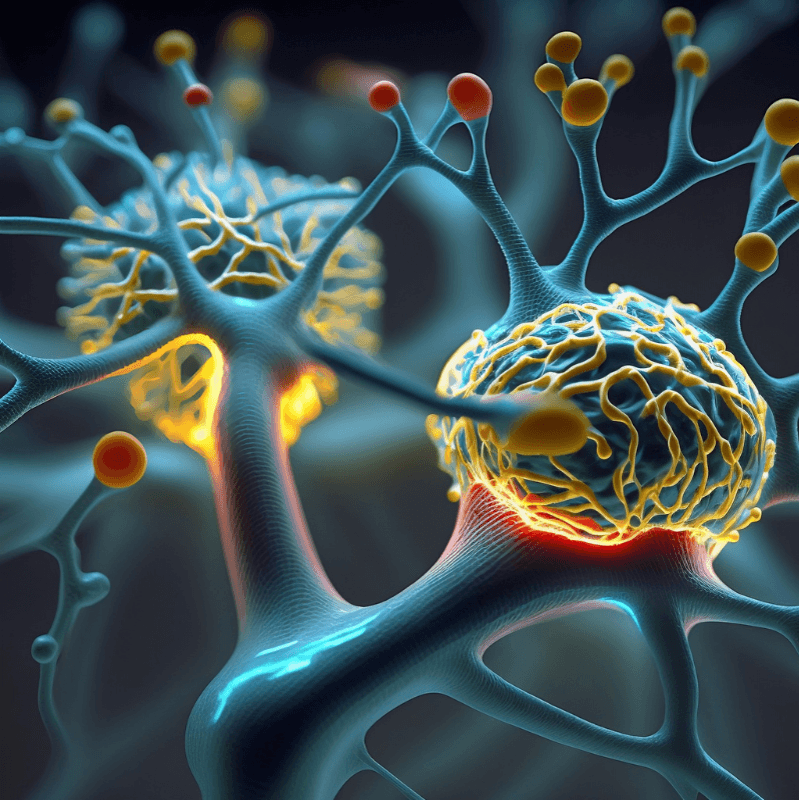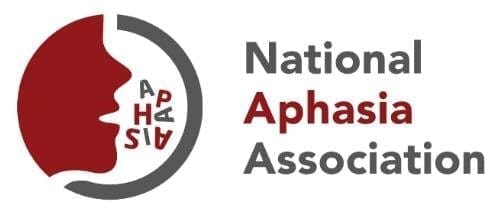Maintain Your Communication and Connection with Primary Progressive Aphasia
Primary Progressive Aphasia
Primary Progressive Aphasia (PPA) is a neurological disorder that gradually impairs language capabilities. Unlike typical aphasia that often results from a stroke, PPA slowly worsens over time. People with PPA may initially find it hard to recall words, speak fluently, understand conversations, or read and write effectively. It's a type of dementia that predominantly affects language skills while other cognitive abilities, like memory, typically remain intact, especially in the early stages of the disease.

Visible Signs

Difficulty Finding
Words
Struggling to recall the right word can make daily conversations difficult, leaving you frustrated and searching for ways to express yourself.

Impaired Speech Production
Speech may become slurred or hard to understand, causing frustration for both you and your loved ones as communication becomes more challenging.

Problems Understanding Language
You might find it harder to follow conversations, making it feel like others are speaking too fast or using unfamiliar words, which can lead to feelings of isolation.

Writing and Reading Difficulties
Writing may take more effort or result in frequent mistakes, while reading comprehension could slow down, making it harder to engage with written communication like emails or texts.
LIFE Speech Pathology
We tailor service and care based on your needs.
Possible Origin & Cause
Understanding the root causes of Primary Progressive Aphasia can help you and your family make informed decisions. While PPA is complex, we’re here to help you navigate through it with knowledge and compassionate care.

Neurological Changes
Protein Accumulation
Genetic Factors
Underlying Conditions
Primary Progressive Aphasia Treatment
Primary Progressive Aphasia Management
Managing Primary Progressive Aphasia (PPA) means more than working on language skills; it’s about supporting you emotionally and helping you stay connected.
Our speech therapy focuses on building new ways to communicate, whether through specialized tools like picture boards or adaptive devices. We also recognize the importance of guiding your family, giving them the tools and knowledge they need to better support you in this journey.
Together, we create a plan that’s focused on maintaining your communication and quality of life as PPA progresses.


Neuroplasticity: Speech Rehabilitation
Even though PPA involves progressive changes, there is hope. Neuroplasticity, the brain’s ability to adapt and form new connections, gives us a way to slow down the loss of language abilities.
Our approach taps into this capacity to help you continue communicating for as long as possible. By focusing on strengthening the skills you already have and developing compensatory strategies, we help you maintain independence and connection with your loved ones.
Speech & Cognitive Applications
Our sessions focus on exercises that strengthen problem-solving, memory, and speech skills. We work on practical activities like organizing thoughts, finding the right words in conversations, and even building strategies to manage daily challenges.
The goal is to help you adapt to the changes in communication while maintaining a high quality of life. With personalized support, we empower you to continue participating in conversations and activities that matter to you.


Aphasia Treatment At LIFE Speech
At LIFE Speech Pathology®, we don't just treat the symptoms of PPA, we support the whole family. Our approach combines evidence-based strategies with compassionate care, ensuring you feel heard and understood.
By involving your spouse or family members, we provide education, resources, and practical tools to support everyone. We build on your strengths and help you adapt to changes over time, focusing on what you can do, rather than what you’ve lost. Together, we help you maximize function and stay connected to the people who matter most.
Understand the Different Types of
Primary Progressive Aphasia
Three Main Variants, One Unique Experience
Primary Progressive Aphasia affects communication in a variety of ways, and while there are three main types, each person’s journey with PPA is unique. Below are broad categories to help explain the differences, but remember, every individual’s experience may vary, and not all symptoms will apply.
Nonfluent/Agrammatic Variant
Characterized by difficulty in producing speech smoothly or forming complete sentences. Speaking may feel effortful, with pauses and hesitation becoming more frequent over time.
Semantic Variant
In this form, the meanings of words become harder to grasp. You may struggle with naming objects or understanding the meaning of certain words, making conversation more difficult.
Logopenic Variant
You may have trouble finding the right word during conversation and might need to pause frequently. Speech is generally fluent but marked by word retrieval challenges and breaks in fluency.
While these categories provide helpful insight, not everyone with PPA will fit neatly into one type, and symptoms can vary or overlap. Want to learn more about how PPA affects communication?
Explore Our Resources Below
Ready to Take Control of Your Communication?
At LIFE Speech Pathology®, we specialize in helping individuals with Primary Progressive Aphasia maintain their communication and quality of life. Our personalized approach is designed to meet you where you are and guide you through every step of this journey, ensuring you feel supported and understood.
Let’s create a plan tailored to your unique needs and goals.
Three Easy Steps to Work Together
1.
Take the Communication Strengths Assessment
When you book a consultation, you'll start by completing our Communication Strengths Wheel. This simple yet powerful tool helps us assess your communication abilities and pinpoint areas for improvement, laying the groundwork for your personalized treatment plan.
2.
Create Your Customized Communication Plan
During your consultation, we’ll review your assessment results and design a personalized plan tailored to your needs and goals.
Your customized plan will address your unique communication challenges and provide a clear path forward.
3.
Implement and Adapt
Your Plan
With your personalized plan in place, you'll begin applying strategies to maintain and strengthen your communication skills. As your needs evolve, we'll adjust your plan to help you stay connected and manage changes, ensuring you receive the right support at every stage.
Resources and Information

The Association for Frontrotemporal Degeneration (AFTD)
AFTD.org
Primary Progressive Aphasia (PPA) falls under the umbrella of Frontotemporal Dementia (FTD) because both conditions involve the degeneration of the frontal and temporal lobes of the brain.
These areas are responsible for language, behavior, and decision-making. In PPA, the main symptom is the gradual loss of language abilities, while in FTD, changes in behavior and personality are often more prominent.
PPA is considered a type of FTD because the same parts of the brain are affected, but the primary symptom in PPA is the progressive decline in communication skills rather than behavior or memory.

National Aphasia Association
Aphasia.org
The National Aphasia Association includes information about Primary Progressive Aphasia (PPA) because PPA is a form of aphasia, a condition that affects a person's ability to communicate. While most forms of aphasia result from a stroke or brain injury, PPA is unique in that it’s caused by the gradual degeneration of the brain’s language centers.
Since PPA leads to progressive difficulty with speaking, understanding, reading, and writing, it falls under the broader category of aphasia. The National Aphasia Association provides resources for all types of aphasia, including PPA, to help individuals and families better understand and manage communication challenges.
START REBUILDING HERE
RESOURCES & SUPPORT
TYPES OF APHASIA
Non-Fluent Aphasias
Fluent Aphasias
MORE THAN APHASIA
Recovery doesn’t stop. Communication. Connection. Life.
© 2026 LIFE Speech Pathology, All Rights Reserved










